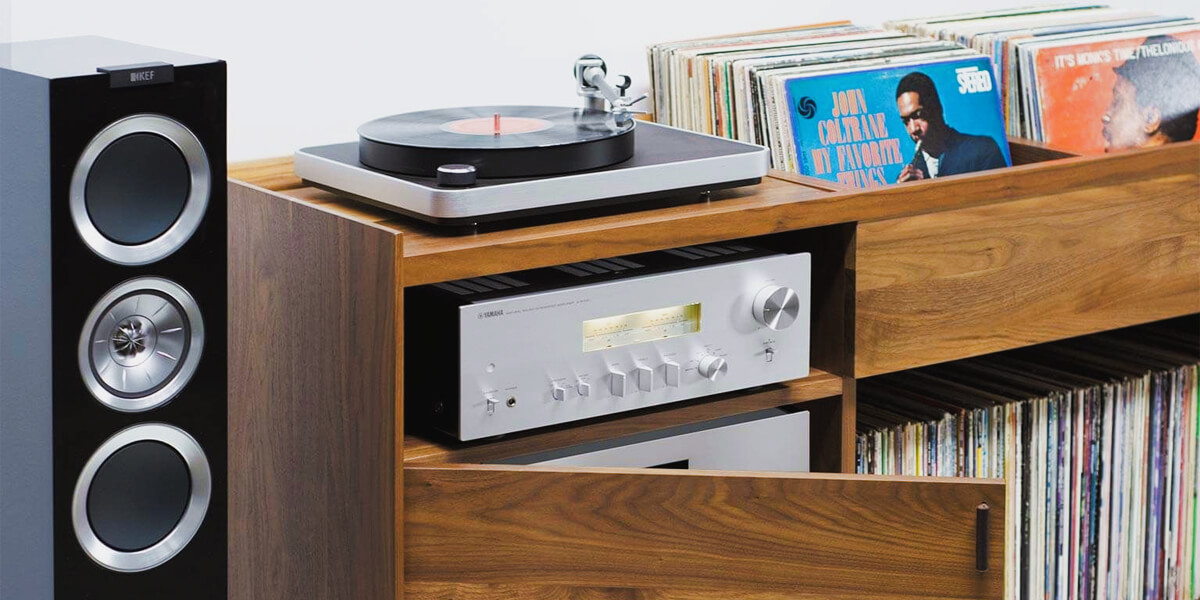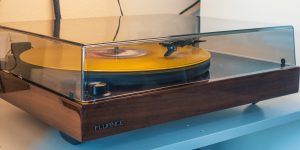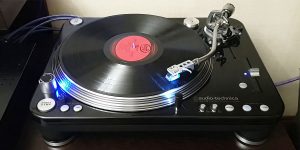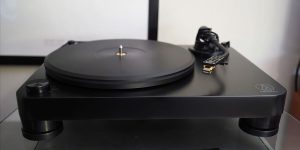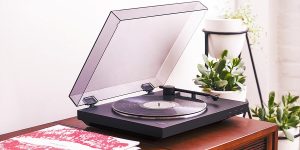As a passionate music enthusiast, I know how valuable a well-preserved vinyl collection can be. Storing vinyl records properly is important to ensure their longevity and maintain their pristine sound quality. Whether you’re a seasoned collector or just starting your vinyl journey, in this article, I will guide you through the essential steps to keep your music treasures safe and sound.
Preparing your records for storage
As a devoted music aficionado, I believe that proper organization and documentation can make a difference in maintaining your record collection. By taking the time to create a catalog or inventory, you’ll not only enhance your own enjoyment but also make it easier to keep track of your cherished vinyl treasures.
Keeping records clean
Cleaning your records before storage is an essential step to ensure their longevity and preserve their sonic excellence. I’ve got some tips to help you clean them:
- Grab yourself a quality cleaning brush or a fancy carbon fiber brush. Gently sweep the brush along the grooves of the platter to remove loose dust and debris.
- Consider using a cleaning solution. Apply a small amount to a microfiber cloth or a dedicated cleaning brush and carefully wipe the surface in a circular motion. Remember to avoid excessive moisture and let the platter dry completely before storing it.
- For a more thorough cleaning, you may opt for a record cleaning machine. These devices use specialized brushes and cleaning solutions to deep clean your records, removing ingrained dirt and restoring their pristine condition.
Gentle handling
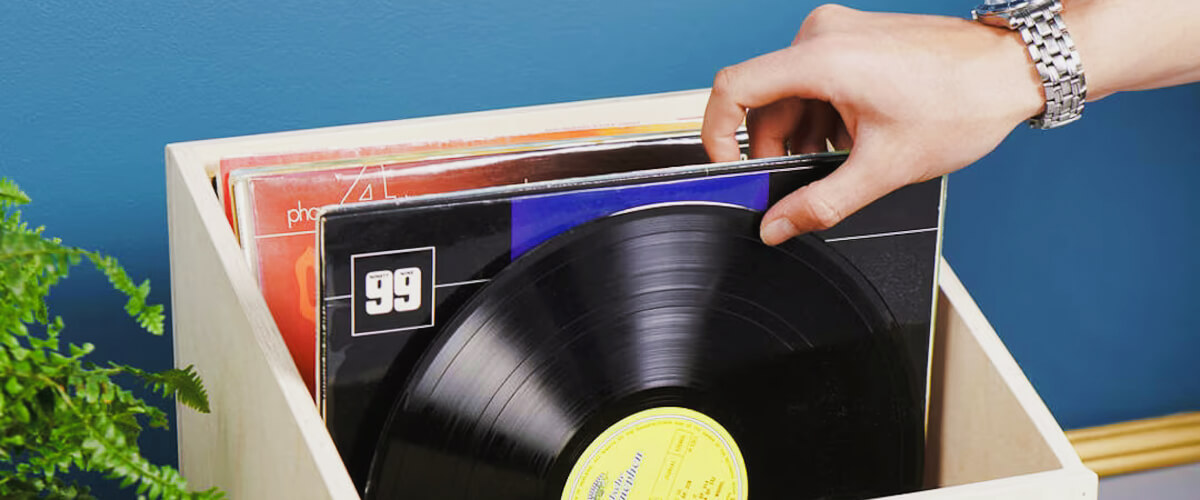
Proper handling is paramount when it comes to safeguarding your beloved vinyl records from scratches and stains. Here are a few tips to ensure careful handling:
- Always handle platters by their edges, avoiding direct contact with the playing surface. This prevents fingerprints and oils from transferring onto the record.
- Avoid sliding records in and out of their sleeves, as this can cause scratches. Instead, gently lift the record out by placing your fingers on the edges of the label.
- When placing a record back into its sleeve, make sure the sleeve is clean and free from debris.
Inspecting and replacing worn internal bushings
To maintain the integrity of your collection, it’s important to inspect and replace any damaged or worn internal bushings.
- Carefully examine the condition of the bushings by gently removing the platter or turntable mat. Look for signs of wear, such as cracks or flattened areas.
- If you notice any damage or wear, consult the manufacturer’s guidelines for your specific turntable model.
- Regularly lubricate the bushings as recommended by the manufacturer.
By giving due attention to the maintenance and inspection of internal bushings, you’ll enjoy consistent playback quality and extend the lifespan of your music collection.
Creating the perfect environment
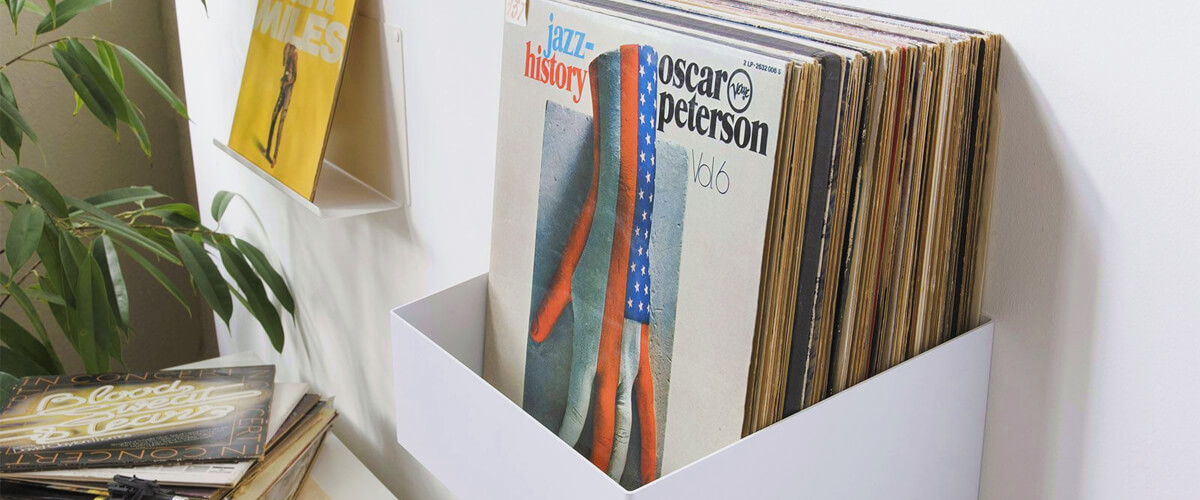
Now that we’ve covered the essentials of cleaning and handling records, let’s explore how to properly store records and ensure they stay in tip-top shape for years to come.
Maintain a constant temperature and humidity level
Fluctuations in temperature and humidity can cause irreparable damage to your vinyl gems. So here are some tips to keep things just right:
- Aim for a temperature between 65°F to 70°F (18°C to 21°C). Avoid extreme temperature changes, as they can lead to warping or cracking of the platters.
- Maintain a relative humidity level between 40% to 50%. Too much humidity can promote mold growth, while low humidity can cause the records to become brittle.
- Consider using a hygrometer. This handy device will help you keep track of the conditions and make any necessary adjustments.
Shielding from harm
Sunlight and heat are vinyl’s sworn enemies. Here’s what you can do to protect them:
- Keep your music collection away from windows and direct sunlight. Find a cozy spot in your home where they can bask in the ambiance of your music collection without being exposed to harmful UV rays.
- Steer clear of heat sources such as radiators, heaters, or even your trusty old fireplace. Extreme heat can cause platters to warp or even melt, which is definitely not the vibe we’re going for.
- Store your music collection in a cool, well-ventilated area. Proper air circulation helps maintain a stable temperature and prevents the accumulation of moisture that can lead to mold growth.
Banishing dust and pollutants
Dust and pollutants are like uninvited guests that can wreak havoc on your records. They can cause surface noise, scratches, and overall sound quality degradation. Here’s how to keep them at bay:
- Store your music collection in sturdy protective sleeves. Inner sleeves made of high-quality anti-static material provide an additional layer of defense against dust and static buildup.
- Invest in outer sleeves to shield the record covers from dust and light scuffs. This extra layer of protection will help keep your album artwork looking fresh and vibrant.
- Regularly clean your storage area to minimize dust accumulation.
By following these guidelines, you’ll create the perfect haven for your vinyl treasures, where they can rest comfortably and sound their best.
Vertical storage: The ultimate rule for record care
Now that we’ve covered the ideal storage conditions for your records let’s talk about the golden rule of proper record storage: storing them vertically.
Vertical storage isn’t just a trendy choice—it’s a tried-and-true method that has stood the test of time. Here’s why it’s the way to go:
- Maximizes space. Storing platters vertically allows you to make the most of your storage area, whether you have a modest collection or a room filled with vinyl goodness.
- Promotes easy browsing. When storing vertically, you can quickly flip through your collection and find that perfect album for your mood.
- Reduces wear and tear. Storing records upright minimizes the risk of ring warping—the dreaded distortion that can occur when platters are stored flat for long periods.
So, remember: when it comes to proper record storage, go vertical! Give your vinyl collection the love and care it deserves, and it will reward you with sweet melodies and timeless enjoyment.

